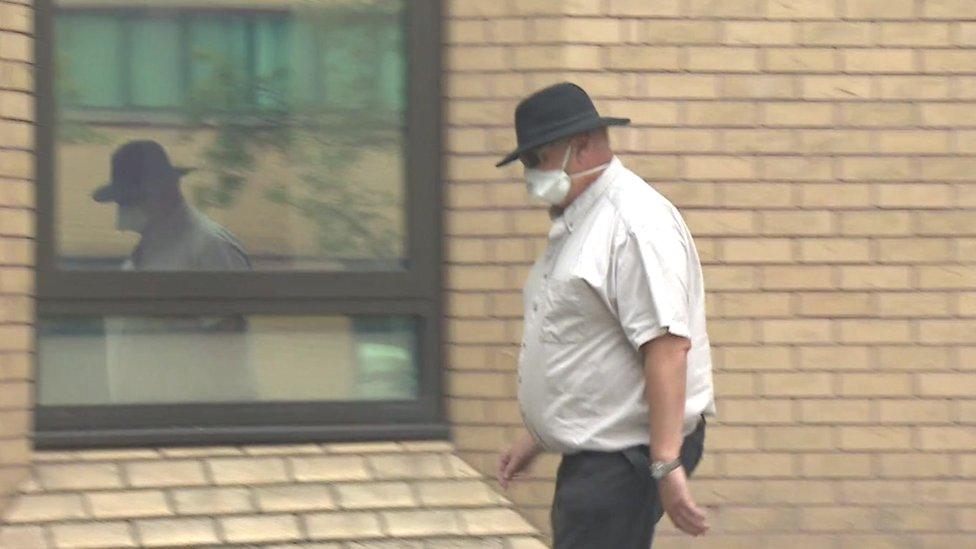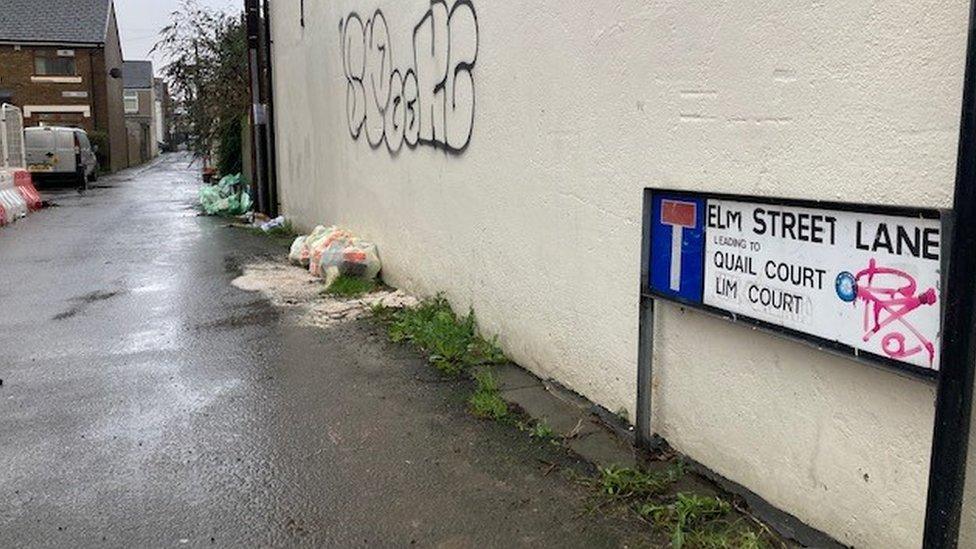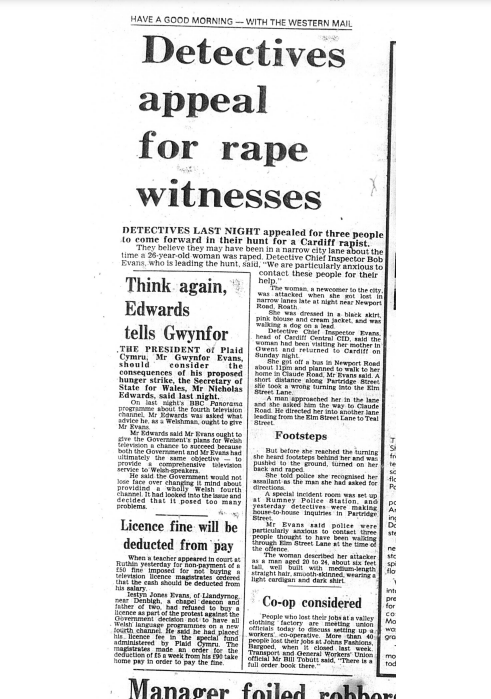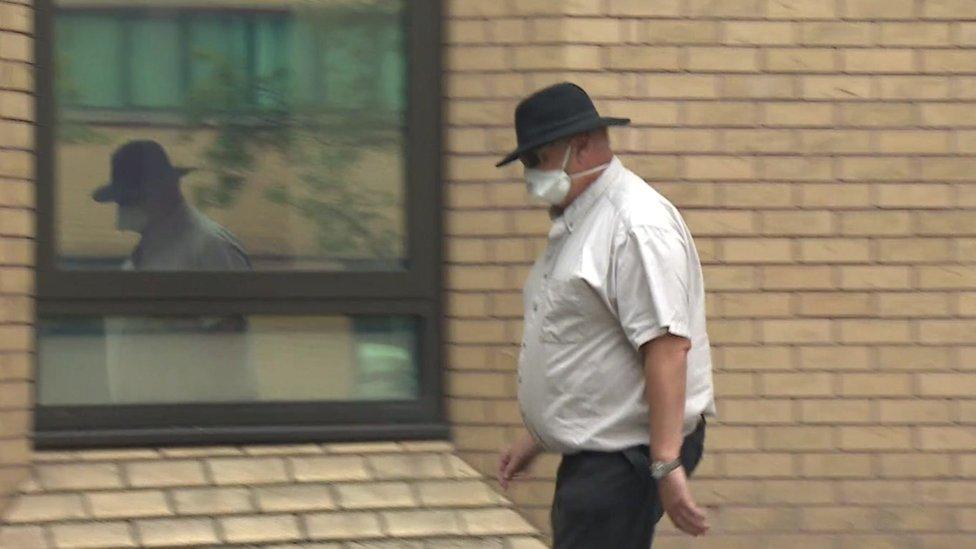Cold case: How detectives caught a rapist 40 years on
- Published

Det Insp Patrick Catto led the team which caught Roland Long more than four decades after his attack
In 2020, police turned up out of the blue at the house of a woman who had been violently raped in 1980 to tell her they'd found her attacker.
"I've been waiting for this knock on the door for the last 40 years," she told them.
It was a key moment for the small team making up Operation Dudley, part of South Wales Police's Specialist Crime Review Unit, which until recently had been led by Det Insp Patrick Catto.
Since 2019, the team has been investigating undetected serious sexual offences across south Wales, dating from the 1970s to early 2010s.
"In the back of my mind, I'm wondering does that victim want the police to knock on their door, are they in a position where perhaps they haven't told their family members and they've put it behind them and here we are dragging it up again," Det Insp Catto said.
In 2008, the team reopened the 1980 rape case, which would eventually lead to the arrest of Roland Long in 2020.
He admitted the rape in January and was sentenced to 10 years in prison earlier.
At the sentencing hearing at Newport Crown Court earlier, the court heard Long had a string of previous convictions, including sex offences dating from 1965 to 2012 and two custodial sentences.
But the conviction took so long because DNA analysis of a semen stain from the victim's skirt failed to show any results.
But since 2008 there has been a breakthrough in technology - using a technique known as DNA-17 - and another test was conducted in 2020.
"The clothing was no longer in existence, however, tapings from the semen stain were kept in our forensic archives in Birmingham since 1980," Det Insp Catto said.
"We applied to get those and we sent them to a forensic laboratory where DNA was extracted from that."


This work can produce either a partial profile, which can be compared against an individual's DNA, or a complete profile, which can be run against a national database where anybody who has ever had DNA taken by the police is recorded.
In this case, DNA taken from the victim's clothing provided a full profile. Within days, police had an offender.
Long was then found, living in Nailsea, North Somerset, just south of Bristol.
When he initially pleaded not guilty, police had to build their case for an upcoming trial.

Roland Long was sentenced on Tuesday
Det Insp Catto said: "In all honesty, there were no original case papers in existence. The CPS asked us to search every station where there was a likelihood of the paperwork being found.
"We interviewed officers who were part of the original investigation who were long since retired. And [we] really had to start from scratch."
Once Long was in custody, police were able to take his DNA again to compare with the strain from 1980, giving them statistics on the likelihood of a match.
Det Insp Catto said the chances of it being someone other than Long were "one billion to one".
Finding the victim was more difficult, with only a name and date of birth to go on but her positive response when they knocked on her door was vital.

The rape happened in a lane in the Roath area of Cardiff
"Once we realised that she wanted justice, she assisted us by being re-interviewed and she was willing to go to court," he said.
"She's a woman who has lived with this ordeal for the last 40 years but it's still really, really strong."
Long changed his plea to guilty in January.


Det Insp Catto said he believed Long would have thought he was "untouchable" after years of evading justice and that he hoped the case showed the police are willing to pursue all crimes.
"It will bring hope to other victims similar to this one and I think it will also give people the courage to report these matters to the police.
"There are rapes that do go unreported and we need to know as an organisation that they are happening.
"Even if there isn't a successful outcome initially, irrespective of the passage of time, we will keep looking at them."
Det Insp Catto said he was proud of the team working under Operation Dudley and while the outcome is rare now, he believed they will have more success in the future.
He added: "It's unique at the moment but because science is developing so rapidly, in five years time, it won't be because there will be so many other cases coming up."
Related topics
- Published6 January 2022

- Published27 August 2021
